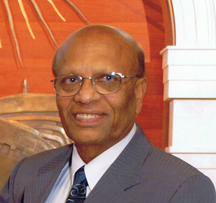The terms “ahimsa” and “Mahatma Gandhi” have become synonymous world over. It was Gandhi who inspired many and made “ahimsa” a household word throughout the world. Gandhi-ji was inspired and influenced by the teachings and philosophy of Jainism and his contacts with many Jains, beginning with childhood and throughout his life. One Jain merchant, Srimad Rajchandra, known as Raichand-bhai became his spiritual mentor. It can be easily said that Jain contacts and Gandhi’s stay in South Africa (where he developed and practiced the concepts and philosophy of practical ahimsa) made a simple Mohan (Gandhi) a Mahatma Gandhi. The life story of Mahatma Gandhi is full of hundreds of daily, real life examples in the practice of ahimsa. Gandhi practiced ahimsa not only regarding food (the items that he would eat or not eat) but also towards all, one- to five-sensed humans and non-human species. He was not just satisfied being a vegetarian, he extended that boundary of radical peace to all living creatures and devoted a significant part of his life towards applying ahimsa. He writes, “I have absolutely forgotten to hate anyone based on any differentiation, of caste, color, gender, religion, age, position, wealth or station in life.” With such an attitude, how can such a person say that avoiding himsa is not possible? Yes, Jainism made a non-Jain into a Gandhi, but hardly any Jain has ever become a Gandhi. During the last 500-1000 year history of India, I do not recall any Jain becoming a Gandhi of that stature. Mahatma Gandhi has been gone for more than sixty-six years; even during this period, I have not seen or known any Gandhi-like Jain in the Jain community. It is a pity and a matter of introspection.
In recent times, Mahatma Gandhi has become the greatest symbol of non-violence. He is a role model of ahimsa to millions of people and has inspired world leaders and Nobel Laureates who, with their vision, unwavering faith in ahimsa, and sacrifices brought about great societal changes. Gandhi’s ahimsa message and practice continue to reverberate. A few notable examples include the abolition of apartheid in South Africa and the Civil Rights movements in the US.
Thousands of stories from the life of Mahatma Gandhi inspire today and will keep on influencing people for a long time. Let me quote below just a few of his remarks and sayings, including:
“There are many causes that I am prepared to die for but no cause that I am prepared to kill for;”
“An eye for an eye makes the whole world blind;”
“The greatness of a nation and its moral progress can be judged by the way its animals are treated;” and
“You must be the change you want to see in the world.”
 Dr. Sulekh Chand Jain
Dr. Sulekh Chand Jain
